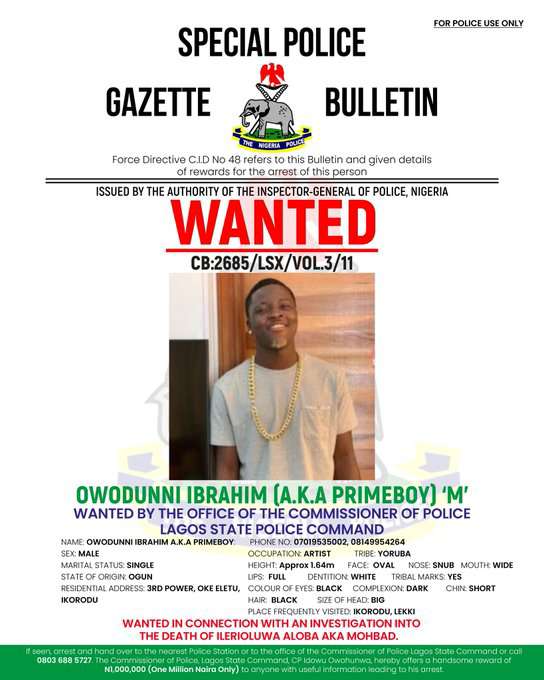Entertainment
EFCC Forensic investigations indict Naira Marley of cyber fraud

The Cybercrime Section of the Economic and Financial Crimes Commission (EFCC) has indicted Naira Marley, a musician, of cyber fraud in the report of its forensic probe of the singer.
The anti corruption agency’s forensic team led by Whyte Dein submitted its report on Thursday, corroborating case against Marley, whose real name is Azeez Fashola.
The singer is facing charges of redit card fraud before the Ikoyi Federal High Court.
Dein, the Chief Detective Officer of the Section told the court that his team’s investigations revealed that the defendant was involved in credit card fraud.
The artiste faced 11 charges bordering on alleged credit card fraud contrary to Money Laundering (Prohibition) Act and the Cyber Crimes Act.
It was gathered that the singer committed these offenses between November 26 and December 11, 2018, and May 10, 2018. He was arraigned on May 20, 2019, but was granted bail.
At the resumed trial on Thursday, Dein, led in evidence by EFCC counsel, Rotimi Oyedepo, told Justice Nicholas Oweibo that they discovered conversations on the defendant’s iPhone with one Raze who asked for a credit card details.
He said, “One of our findings from the forensic report shows the exchange of chat messages with several persons when the defendant sent credit card details, including card numbers and expiration dates. Visa card details were one of those sent by the defendant to a certain person known on his contact list as Raze. This message sent Visa Card details to Raze, after which Raze replied that the card was not valid.”
“We were able to establish through investigation the previous messages he sent with a wrong card that was indeed not valid. We then repeated the same process a second time which was now valid.”
Dein also explained that the singer used a multi-lingual browser to access illegal networks.
He said: “The defendant used malicious tools to disguise the identity and location of the user of the laptop when connected to the internet along with the presence of the Top Browser which acted as a single gateway to the dark net. This gave us a reasonable ground to suspect that the defendant had been engaging in fraudulent card activities. And this was established through a reply to our request to Visa Western Union Card.”
“The types of sites most commonly associated with the dark web are marketplaces where illicit goods such as narcotics, firearms, and stolen credit card numbers are bought and sold. The darkest corners are used to hire hitmen, engage in human trafficking, and exchange child pornography.”








